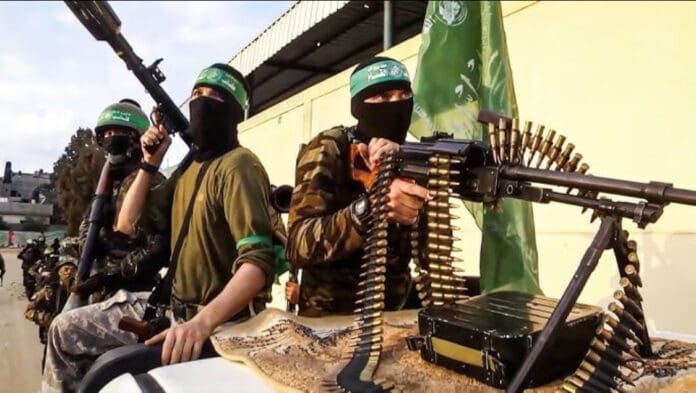In a rare on-camera interview, an Israeli reservist who served three tours of duty in Gaza has broken ranks to expose what he describes as systemic practices that resulted in the routine killing of civilians. Speaking anonymously to Sky News, the soldier detailed orders to shoot anyone entering so-called no-go zones, regardless of whether they posed a threat, a policy he claims left countless civilians dead.
“We have a territory that we are in, and the commands are: everyone that comes inside needs to die,” he said. “If they’re inside, they’re dangerous. You need to kill them. No matter who it is.”
His account offers one of the most direct testimonies yet about the conduct of Israeli forces in Gaza during the ongoing war, raising serious concerns about the disregard for civilian life and the psychological environment that appears to normalise such actions within certain units.
Arbitrary Killings: “Like the Wild West”
The soldier, a reservist in the Israel Defence Force’s (IDF) 252nd Division, described how his unit was often stationed near civilian areas. They would occupy abandoned Palestinian homes and establish ‘imaginary’ boundaries—unmarked no-go zones that Gazan civilians supposedly knew not to cross.
“But how can they know?” he asked. Despite this uncertainty, anyone who entered the zone was typically shot. “It might be like a teenager riding his bicycle,” he recalled.
The soldier described how the rules of engagement were fluid, changing based on the mood and attitude of the commanding officer. In some cases, civilians crossing the line would be shot on sight; in others, they might be captured.
“It really depends on the day, the mood of the commander,” he said. “Every commander can choose for himself what he does. So it’s kind of like the Wild West. Some commanders can really decide to do war crimes and bad things and don’t face the consequences of that.”
Dehumanisation and the Collapse of Moral Boundaries
A recurring theme in the soldier’s testimony was the prevailing belief among many Israeli troops that all Gazans were complicit in the Hamas-led 7 October attack on Israel, which killed around 1,200 people and led to the abduction of approximately 250 hostages.
“They’d say: ‘Yeah, but these people didn’t do anything to prevent October 7, and they probably had fun when this was happening to us. So they deserve to die.’”
Such rationalisations, he said, were common and rarely challenged. “I think a lot of them really felt like they were doing something good. In their mind, these people aren’t innocent.”
This collective psychological framing—where an entire population is branded as the enemy—raises grave ethical concerns. It points to a leadership environment where the dehumanisation of civilians is tolerated, even encouraged, contributing to an operational culture where war crimes can occur without accountability.
The Moral Cost of Silence
In Israel, criticising the military is a profound social taboo. The IDF is deeply interwoven into Israeli national identity, and speaking out against it often invites accusations of betrayal.
The soldier, aware of these risks, nevertheless felt compelled to break his silence.
“I kind of feel like I took part in something bad, and I need to counter it with something good by speaking out, because I am very troubled about what I took part in and still am taking part in as a soldier and citizen in this country.”
He lamented the lack of public awareness in Israel about the true nature of the war’s conduct on the ground.
“I think in the Israeli community, it’s very hard to criticise itself and its army. A lot of people don’t understand what they are agreeing to. They think the war needs to happen, and we need to bring the hostages back, but they don’t understand the consequences. I think a lot of people, if they knew exactly what’s happening, it wouldn’t go down very well for them.”
Official Denials
When the allegations were put to the Israeli military, the IDF responded by saying it “operates in strict accordance with its rules of engagement and international law, taking feasible precautions to mitigate civilian harm”.
“The IDF operates against military targets and objectives, and does not target civilians or civilian objects,” the statement added. The IDF further stated that reports of violations of international law are reviewed by the relevant authorities.
The military pointed to the steps it claims to take to minimise civilian casualties, such as issuing evacuation warnings and updating designated safe zones.
However, the soldier’s testimony paints a far more troubling picture—one where evacuation zones are not clearly communicated, where “imaginary” boundaries can cost people their lives, and where the fate of civilians may depend on the subjective mood of individual commanders.
The Price of Psychopathic Leadership
The soldier’s reflections suggest a deeper issue than mere battlefield chaos: a failure of leadership that allows personal vendettas, collective punishment, and a warped moral compass to dominate military strategy. In his words, it is a system where “some commanders can really decide to do war crimes and bad things and don’t face the consequences of that.”
Such leadership, by fostering an environment where civilians are viewed as legitimate targets, veers dangerously towards psychopathy: an absence of empathy, a disregard for human life, and a chilling sense of impunity.
While the IDF maintains its adherence to international law, the testimony raises serious questions about how those laws are applied on the ground—and whether the internal military culture is capable of enforcing them.
The soldier’s courageous decision to speak out cuts through a wall of silence and offers a rare, deeply troubling glimpse into a murderous regime that continues to devastate the lives of numerous men, women and children.







